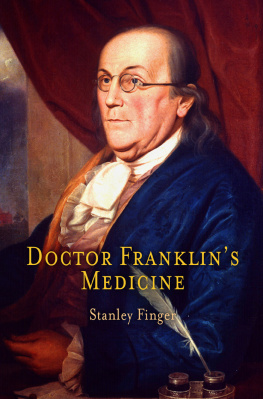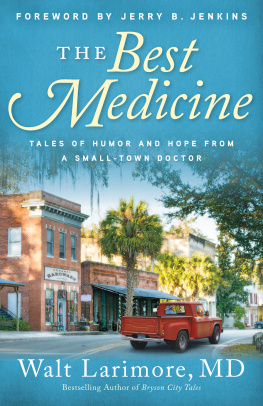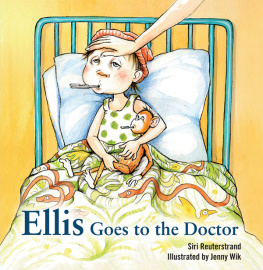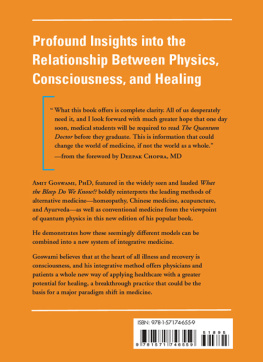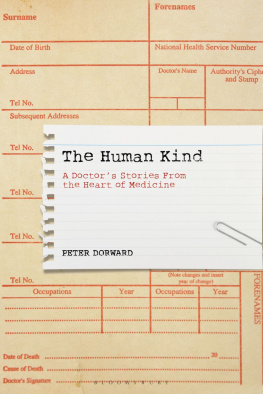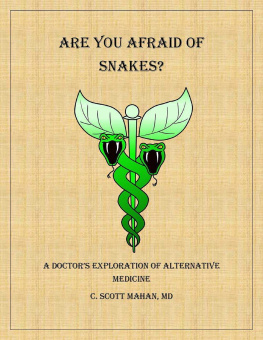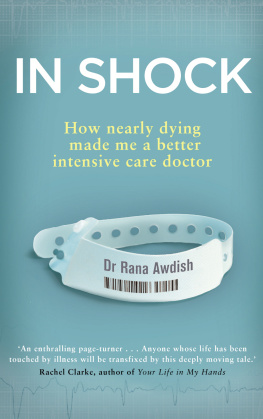Copyright 2006 University of Pennsylvania Press
All rights reserved
Printed in the United States of America on acid-free paper
10 9 8 7 6 5 4 3 2 1
Published by
University of Pennsylvania Press
Philadelphia, Pennsylvania 19104-4122
ISBN-13: 978-0-8122-3913-3
ISBN-10: 0-8122-3913-X
A U. S. Library of Congress Cataloging-in-Publication record is available
from the Library of Congress
To my loving wife Wendy and in memory of our son Robert, who,
like Francis Folger Franklin, was taken from us much too soon.
This book is also dedicated to our son Brad, his wife Gabrielle, and
our first grandchild, Sophia, who at age three months smiled with
delight every time I told her about Benjamin Franklins
forays into medicine.
Hes the best physician that knows
the worthlessness of the most medicines.
Poor Richards Almanack, 1732
Preface
Benjamin Franklinthe only Founding Father of the New Republic to sign the Declaration of Independence, the alliance with France, the peace treaty with Britain, and the Constitutionhas long been a favorite of readers and writers of American history. If we count the number of new books, articles, and media presentations involving Franklin, it seems that his popularity is growing with each passing year.
Historians have so admirably covered Franklins politics, personal life, printing career, economics, science, philosophy, and ethics that one might be tempted to conclude that there is little more that can be discovered or written about this remarkable man. On the pages that follow, however, I shall present a side of Franklin that has not been examined sufficiently and put under one cover in the pasthis numerous forays into medicine.
In a sense, this book has three purposes. One is to examine Franklins major medical contributions in some detail. Another is to show how Franklin was shaped by, and helped to change, the eighteenth-century medical landscape. A third is to look at what he knew about and how he treated his own chronic medical disorders. My efforts here are an initial attempt to survey a wealth of material. Although it is by no means an exhaustive account, it is my hope that it will lead to a greater appreciation of Franklin as a significant figure in the world of medicine. Ideally, it will also shed more light on the status of the healing arts and preventive medicine in America and in Europe during the eighteenth century.
After years of collecting, reading, and taking notes on everything that I could find on Franklin and medicine, I concluded that it would be best to tie Franklins medical interests and contributions to specific periods in his life. It is clear that he was involved with some problems, such as telling people how to acquire immunity against smallpox, for more than fifty years. But for most subjects, a chronological approach seemed reasonable, and it allowed me to meld his insights and projects with the well-documented narrative of his life and the medical ideas that were being discussed by the physicians and laypeople around him.
Hence, after a general introduction on the nature of eighteenth-century American medicine and Franklins multifaceted approach to medicine, Part I will examine his most significant contributions to medicine from the colonies. Part II will turn to what he did as an experimental natural philosopher in the field of medicine while in England, and Part III will do the same for his years in France. Although Franklin was sent to Europe as a diplomat, his mind was never far from medicine, and he interacted with and was respected by some of the most famous physicians of the day, including John Pringle, Thomas Sydenham, and Benjamin Rush. He also corresponded extensively with the leading natural philosophers of the time, and these exchanges aided the development and dissemination of medical advances in Europe and America. Part IV will be devoted to the final years of his life and his death in Philadelphia. Even at an advanced age he invented remarkable devices to compensate for his disabilities, and he experimented and worked with his physicians to manage an annoying skin condition, his recurrent attacks of painful gout, and his large bladder stone.
It has been said that everybody can find their own Franklin and their own unique way of approaching him, even when working with the same resources. My Franklin will differ from the Franklin presented by a social historian, who might draw attention to the changing marketplace for medicine; from the Franklin portrayed by a general biographer, who would be more inclined to concentrate on his politics and social relationships; and from the Franklin constructed by someone intent on knocking him off the high pedestal on which he is often placed.
The Franklin to be presented in this book is constructed by a person who spent more than twenty-five years running a laboratory in the brain and behavioral sciences before turning to the history of science and medicine. As such, I shall concentrate on the medical history and eighteenth-century milieu and let Franklin speak for himself.
I could not have written this book without the editorial help, encouragement, and moral support of my wife Wendy. She deserves a medal or at least a dream vacation for dealing with my ups and downs and hopes and fears, as I read until my eyelids closed and occasionally awoke in a sweat, pondering how best to reach a broad audience.
Robert Lockhart, my editor at the University of Pennsylvania Press, also deserves my special thanks for his insights about how to present this material in a stimulating but factual way, as does my copyeditor, Noreen OConnor-Abel. In addition, I also must thank Lilla Vekerdy of the Washington University Medical School Rare Books Library for her help, and the Packard Humanties Institute for providing me with a computer disk containing more than 30,000 letters and other pieces from Franklin or sent to him. Without this valuable resource, this book would have taken much longer to complete. Of course, I am also grateful to the many people (too many to name) who looked over one or more of my chapters, and to the American Philosophical Society, Yale University, and the College of Physicians of Philadelphia for allowing me to use their resources.
I hope that everyone involved with this arduous project on Benjamin Franklin and eighteenth-century medicine, even those who might have approached this very challenging topic very differently, will appreciate this first step. My hope is that this volume will stimulate additional research in this area, as there is much more yet to be gleaned about Franklin as a man of medicine.
INTRODUCTION
Benjamin Franklins Enlightened Medicine
If you woud not be forgotten
As soon as you are dead and rotten,
Either write things worth reading,
Or do things worth the writing.
Poor Richards Almanack, 1738
In 1784 an experiment was conducted in a sunbathed garden in Passy, a beautiful village along the Seine River, then just a few miles outside Paris. It involved a suggestible twelve-year-old boy with an unspecified medical disorder, his well-connected physician, a select group of observers, and some well-cared-for apricot trees.
While the unnamed boy remained inside a nearby house, his distinguished physician, Charles Deslon (or dEslon), proceeded to magnetize a single apricot tree in the garden. He then walked behind the other observers, where he would be hidden from the boys sight. He was allowed, however, to direct his cane and his countenance toward the tree, in order to augment the action of the magnetism.

